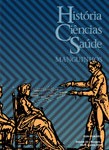October 2018
ELIZABETH FEE (1946-2018)

Elizabeth Fee (1946- 2018). During the past few years she finalized, with our scientific editor Marcos Cueto and with Professor Theodore Brown, a book manuscript on the History of the World Health Organization that will be published next year by Cambridge University Press.
We are sorry to inform of the passing of Elizabeth Fee, a colleague and friend of Historia Ciencia Saúde Manguinhos, on October, 17, 2018. She published an article and an interview with us:
Brown, Theodore M., Cueto, Marcos and Fee, Elizabeth. A transição de saúde pública ‘internacional’ para ‘global’ e a Organização Mundial da Saúde. Hist. cienc. saude-Manguinhos, Set 2006, vol.13, no.3.
Hochman, Gilberto et al. Elizabeth Fee: uma historiadora em busca de audiências mais amplas. Hist. cienc. saude-Manguinhos, Set 2006, vol.13, no.3, p.759-776
Below a note of professor Anne Emanuelle Birn a member of our editorial board.
–Anne-Emanuelle Birn, University of Toronto
We are deeply saddened to announce the passing of Dr. Elizabeth Fee on October 17, 2018. Dr. Fee was a remarkable and influential public health historian, whose personal and professional trajectories led her to speak truth to and about power in public health, past and present.
Born in Northern Ireland in 1946, during the time of the “Troubles,” to Irish-Methodist missionary parents, Liz’s childhood brought her into contact with peoples and struggles across the globe. At just 5 weeks of age, she was whisked away by her parents to civil war-era China, where she lost hearing in one ear from an untreated bout with scarlet fever. This turned her into an astute reader of people’s behaviors, and later made her a skilled meeting chair (who appeared to be fully integrating every last comment while she deftly crafted consensus around an invariably progressive agenda). In mid-childhood, she attended school in Malaysia, after which her family returned to Belfast. There, she came of age amidst festering political and religious violence, learning firsthand that history is told and retold by protagonists and witnesses, oppressors and oppressed.
Dr. Fee achieved First Class Honours at Cambridge University in biochemistry and history and philosophy of science, proceeding to earn 2 Master’s degrees and then a doctorate in history of science (1978) from Princeton University, with a dissertation focusing on “Science and the `Woman Question,’ 1860-1920″ as analyzed through Victorian-era periodicals.
From 1974 to 1995 she was a professor at the Johns Hopkins School of Hygiene and Public Health (now Bloomberg School), first in health humanities, then international health, and finally health policy, infusing historical and critical perspectives into each of these fields. Deeply curious about her institutional base, in 1987 she published Disease and Discovery: A History of the Johns Hopkins School of Hygiene and Public Health, 1916-1939. In this first-ever biography of the first-ever school of public health, Dr. Fee crafted what might have been a staid institutional history into an engaging and eyebrow-raising account that retraces the powerful forces, figures, and ideologies that shaped the school’s founding and early trajectory. She revisited this theme in later works, illuminating the politics of health training in distinct milieus and demonstrating how power was marshalled (and who marshalled it) in the presumed neutral and technocratic domain of public health education.
Her early interests in feminism, women, and science burgeoned into several notable works on women, gender, and health, including“Women and Health Care: A Comparison of Theories” International Journal of Health Services (1975), and the co-edited volume (with Nancy Krieger), Women’s Health, Politics, and Power: Essays on Sex\Gender, Medicine, and Public Health (1994).
Ever attuned to her surroundings and the historical moment, Liz co-edited (with Daniel Fox) two pathbreaking volumes on AIDS, as it was becoming a global modern plague: AIDS: The Burden of History (1988) and AIDS: The Making of a Chronic Disease (1992). These critically insightful books became instant classics, bringing past reflections and emerging insights to bear on ongoing questions and dilemmas for a public desperate to make sense of what was going on. In applying her keen analysis of the politics of sexuality to pressing public health issues during the early years of the AIDS epidemic, Liz’s writings about the disease and its effects among gay men, straight women, and lesbians helped inform a now growing scholarship on LGBTQ+ health and well-being.
In 1990 Dr. Fee took over editorship of a rather moribund historical section of the American Journal of Public Health (AJPH), called “Public Health, Then and Now” (which had earned the moniker of “Public Health, Now and Then” due to its infrequent appearance!). Together with Ted Brown –and under the supportive guidance of AJPH editors-in-chief Mary Northridge (1998-2015) and now Alfredo Morabia (2015-present)–both champions of critical public health history, she transformed this section into one of the most dynamic aspects of the journal, making it a go-to venue for cutting-edge history of public health scholarship.
The pair also created two new features of this section: “Voices from the Past,” which reprints original sources of public health thinkers, researchers, leaders, and activists, and “Images of Health,” capturing visual dimensions of these actors. Exemplary among the decades-long and inordinately productive Rodgers and Hammerstein-style collaboration between Liz and Ted, and between Liz and other co-authors, were tributes to African-American polymath social scientist, anti-racism/anti-discrimination activist/leader, and avowed leftist W.E.B. DuBois; anarchist-revolutionary, free love advocate, and nurse-midwife Emma Goldman; the first US <out> gay health officer, civil rights activist, leftist agitator, and amateur archivist Walter Lear; and socialist politician, health minister, Latin American social medicine leader, and Chilean President, Salvador Allende.
Somehow Liz also found time to work on many other topics, ranging from the history of social class as a “Missing Link in U.S. Health Data” (co-authored with Krieger), to New York City’s garbage, to interviewing the Cuban Health Minister on sex education, to local history, co-editing The Baltimore Book: New Views of Local History (1991).
These varied interests made their way into her popular and perennially award-winning courses on women and health, and history of public health, and into extracurricular highlights such as a municipal activism bus tour called “Baltimore by Bus: Steering a New Course through the City’s History.”
After influencing countless students and many colleagues over two decades at Johns Hopkins (where I was privileged to be her advisee), in 1995 Dr. Fee was named Chief of the History of Medicine Division (HMD), National Library of Medicine (NLM), at the National Institutes of Health in Bethesda, MD, USA. In 2011, she became the Chief Historian of the NLM, a position she held until her retirement just a few months ago. At NLM, Dr. Fee added leadership and administrative skills, as well as a talent for engaging with broader publics, to her teaching and writing finesse.
Liz’s political goal of raising historical consciousness as a conduit for societal change, her love of shows, and sharp eye for the visual –the latter undoubtedly schooled by her artist mother who pushed her to precision when naming particular shades of colors– made her role as public convener of exhibits and plays all the more apt.
Indeed, she oversaw the resurrection and dramatic expansion of NLM’s public exhibits with a dynamic team of curators, covering such topics as women leaders in medicine, “Emotions and Disease,” “Dream Anatomy,” “The Once and Future Web: Worlds Woven by the Telegraph and Internet,” and Frankenstein.
To ensure an ample budget for HMD, Dr. Fee testified on Capitol Hill, navigating treacherous political waters with her enormous mastery of language and spellbinding Irish-English-North American lilt. When higher-ups questioned the inclusion of “revolutionary Ernesto ‘Che’ Guevara” in an exhibit that highlighted famous people with asthma, Dr. Fee winkingly accepted the directive that Che be characterized instead as a “freedom fighter,” a term that, ironically, made Guevara acceptable to mainstream North American audiences rather than the reverse.
In the early 1990s, having long been active in various history of medicine and health professional associations, Dr. Fee helped co-found two crucial organizations that brought recognition and legitimacy to left-wing activism and scholarship in public health history. The Sigerist Circle was founded in 1990 by a group of medical and public health historians and activists to give special attention to issues of class, race, and gender, and to the use of Marxist, feminist, postcolonial, and related critical methodologies in the analysis of medical history. Named for the pioneering history of medicine scholar-activist Henry Sigerist, the group’s activities include an annual scholarly session (adjacent to the meeting of the American Association for the History of Medicine), participation in contemporary political affairs, and –before listserves and search engines made them redundant– newsletters and a periodic bibliography of works otherwise difficult to locate. Dr. Fee served as both Vice-President and President of the Sigerist Circle in its nascent years, helping to animate events, and mentor and provide mutual assistance and intellectual stimulation to young scholars and other colleagues. Liz and Ted Brown also co-edited the monumental volume Making Medical History: The Life and Times of Henry E. Sigerist (1997), bringing additional credibility to the Sigerist Circle’s work.
In 1994 Liz helped cofound the Spirit of 1848, which is a Caucus affiliated with the American Public Health Association (APHA) and is committed to underscoring and analyzing the integral connections between social justice and public health. Both its listserve and its sessions at the APHA annual meeting are aimed at addressing the professional, practical, and scholarly isolation many progressives experience – and at working collectively and in dialogue, to understand and change how social divisions based on social class, race/ethnicity, gender, sexual identity, and age affect the public’s health. With the Spirit of 1848’s history committee consciously linked to the Sigerist Circle, Liz helped infuse historical passions and sensibilities into the Spirit of 1848’s various activities around the politics of public health.
Those who are long-time 1848-ers will recall the Extravaganza held at APHA in 1998 (Washington, DC), titled “150 Years of the Spirit of 1848: An Evening of Politics, Passion, and Public Health.” This marathon 4-hour session included participation of multiple progressive APHA caucuses and sections and the beautiful voices of Rafiki na Dada, and culminated in the singing of the Internationale. Not only did Liz give a stirring talk on “The 1848 Movements for Socialism and Justice,” she corralled the NLM’s costume person into bringing along a half dozen 1848-era outfits—dressing herself in the garb of the time, as well as costuming a fictional Karl Marx and Olympe de Gouges, among others.
Dr. Fee was the recipient of numerous honors, including Kellogg and Fulbright fellowships, the National Library of Medicine Regents Award, the Arthur Viseltear Award from APHA’s Medical Care Section, as well as endowed lectures across the world. Her more than 200 articles and chapters cover topics as diverse as bioterrorism, sin vs. science in the racialized treatment of syphilis in Baltimore, and popularizing the toothbrush, ever posing the question of whether there is anything to learn from history and speaking to both specialists and a broad public of all ages.
Well aware of her critical writings, admirers of Dr. Fee’s work at the Rockefeller Foundation and the World Health Organization (WHO) invited her in the early 2000s to co-chair the history working group of the Joint Learning Initiative, an effort to analyze international public health initiatives during the 20th century and uncover new insights into their successes and failures. This led to her involvement in a series of articles and a forthcoming co-authored monograph (with Marcos Cueto and Ted Brown) examining the vagaries of global health and WHO’s role therein. Once again, Liz was vital to ensuring that the genre of institutional history would be transformed into a page-turning narrative of contentious politics, personae, and programs spanning WHO’s aspirational post-World War II beginnings, the tensions and turnarounds of the Cold War period, and the embattled contemporary era of private encroachment on WHO turf.
In recent years, despite facing multiple health challenges, Liz continued to write prolifically, particularly short pieces with a wide audience in mind that shed light on often little-known revolutionary figures and movements.
This small snapshot could not possibly capture the scholarly, professional, and personal contributions that Liz made across her lifetime. Without a doubt, the work of Elizabeth Fee, the doyenne of public health historians, will endure and continue to inform the critical progressive work of the many communities of practitioners, activists, politicians, and scholars around the world whose lives Liz touched and whose work she inspired.
*Dr. Fee’s beloved wife and sometime co-author, Mary Garofalo, has asked that donations in honor of Liz be made to the ALS Foundation and to progressive public health causes across the world.









